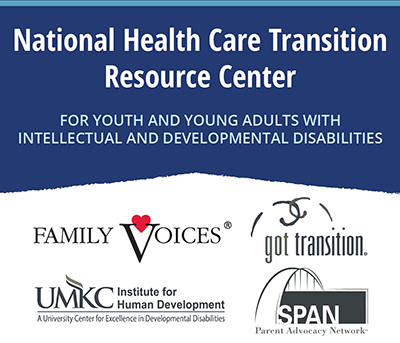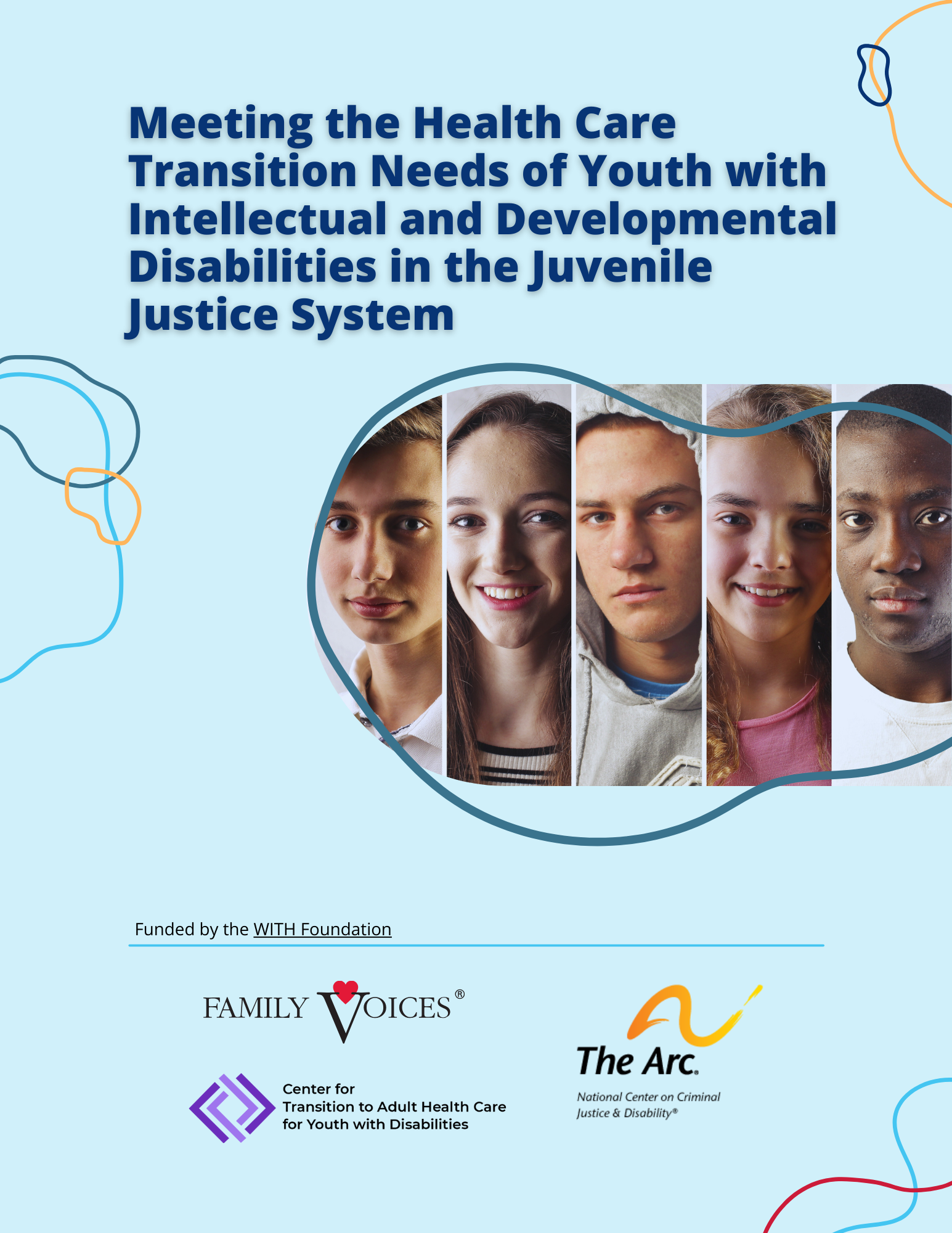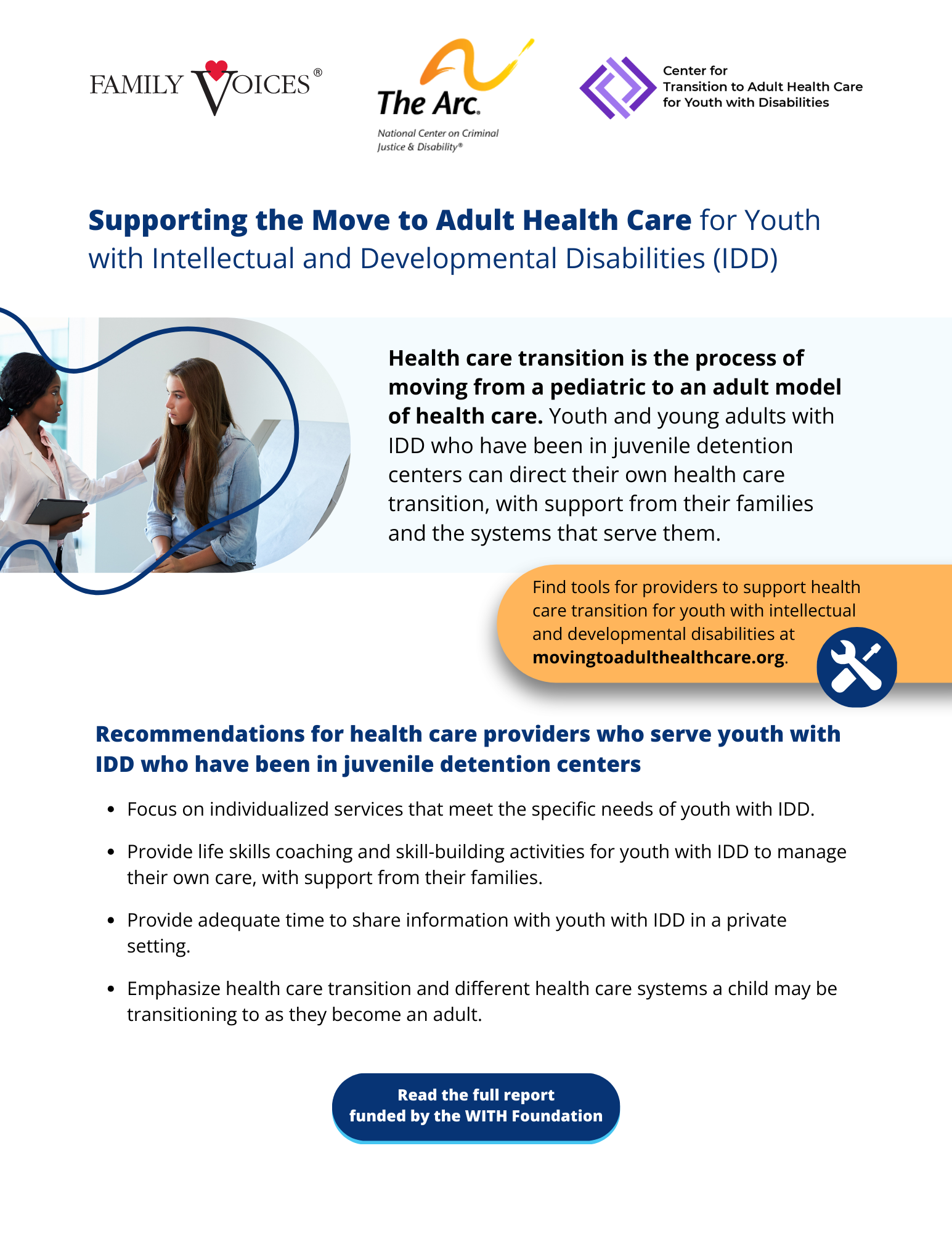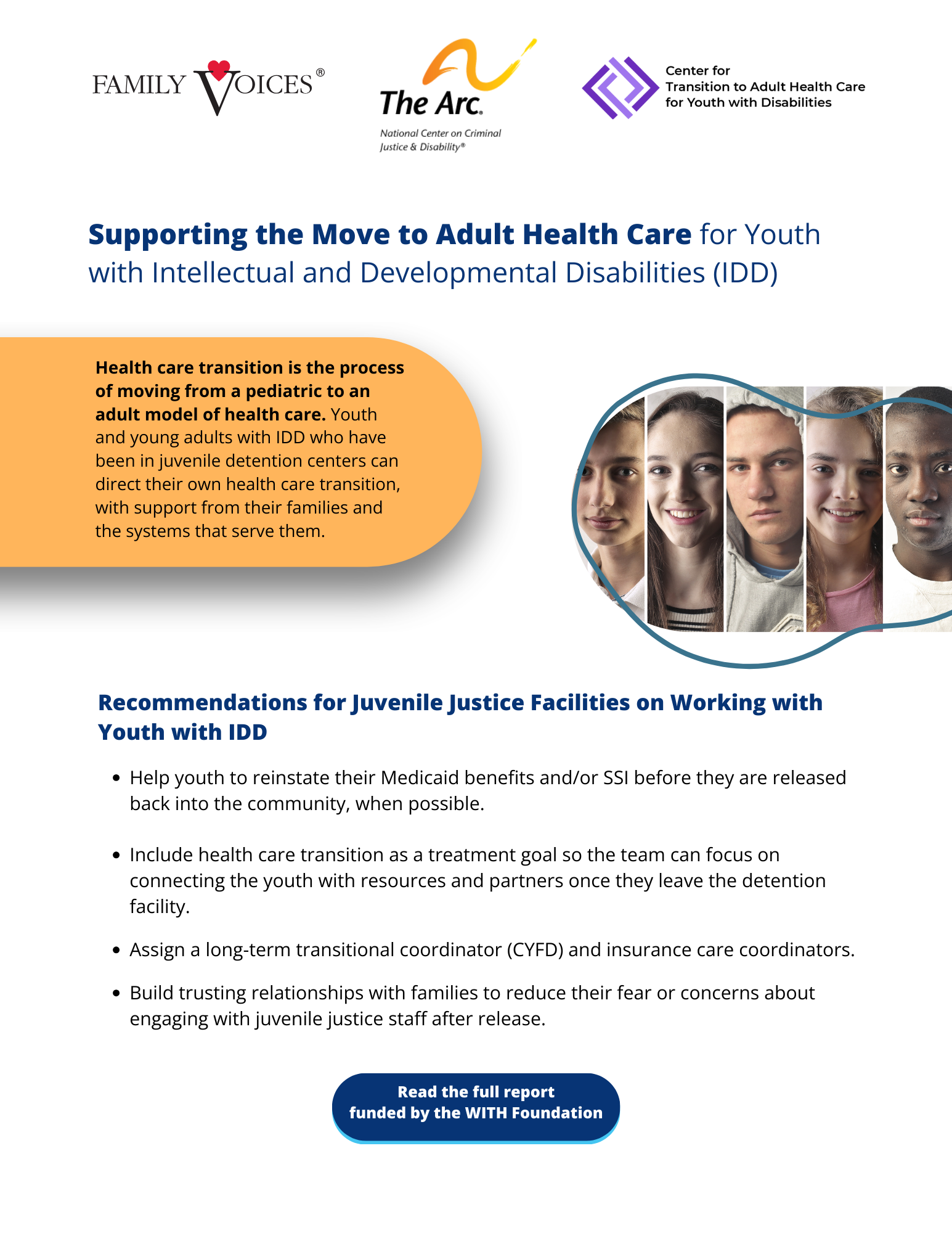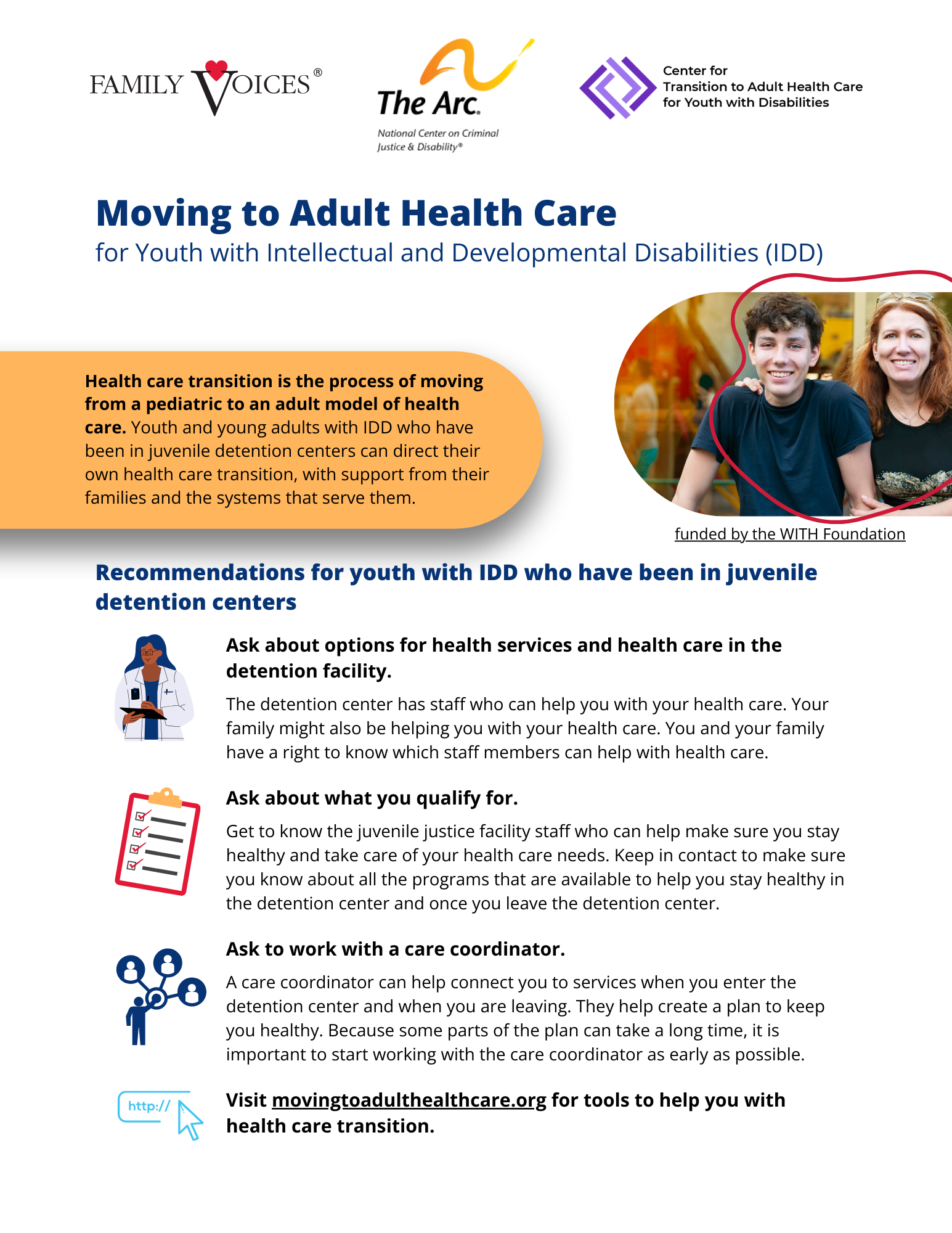Meeting Health Care Transition (HCT) Needs of Youth with ID/DD Who Have Been in Detention
Funded by the WITH Foundation (September 2022 – August 2023)
Project Goal
Family Voices worked with The Arc’s National Center on Criminal Justice and Disability to learn more about the needs of youth and young adults with intellectual and developmental disabilities who have been in detention facilities; to engage these youth in leadership opportunities, develop educational resources for families and professionals; and to develop tools for youth to help them lead their own health care transition.
What we know
- An estimated 33% of youth and young adults who are in detention have an intellectual or developmental disability (ID/DD) (Quinn et al., 2005).
- While in detention, they face barriers to adequate care, including inadequate health histories, lack of subspecialty care, and an insufficient number of providers (Perry & Morris, 2014).
- Upon release, follow-up of medical and psychological care is often neglected (Society for Adolescent Medicine, 2000) due to lack of access to health insurance (Golzari & Kuo, 2013) and primary care in their community (Feinstein et al., 1998).
- Youth and young adults who have been in detention are at increased risk of poor health outcomes, including shorter life expectancy and worse social functioning (Massoglia, 2008).
- 85% of youth and young adults who were previously in detention report not seeing a health care provider after release (Golzari & Kuo, 2013).
What we learned
In this project, we conducted key informant interviews and surveys to learn about the health care transition needs of youth with ID/DD in detention.


